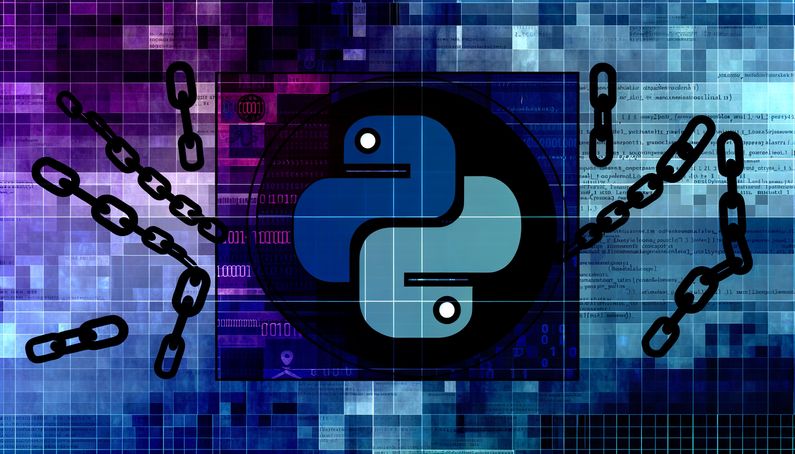
The Evolving Threat Landscape: PyPI and Cybersecurity Challenges
The Python Package Index (PyPI) has emerged as a critical battleground in cybersecurity, where trusted protocols like Gmail and WebSockets are being manipulated for malicious purposes. Attackers are increasingly exploiting these platforms to deploy harmful packages, as seen in the 2025 PyPI exploit, which marked a significant shift in cloud risk dynamics (Security Boulevard). This incident underscores the evolving threat landscape, where the abuse of trusted protocols, such as Gmail’s SMTP (Simple Mail Transfer Protocol), facilitates covert command and control operations, essentially allowing attackers to remotely control systems (Socket Dev). The sophistication of these attacks highlights the urgent need for enhanced monitoring and security measures within cloud environments.
Broader Context and Related Incidents
Evolution of PyPI Threats
The Python Package Index (PyPI) has become a focal point for cyber threats, particularly through the exploitation of trusted protocols like Gmail and WebSockets for system hijacking. Over the years, the threat landscape has evolved significantly, with attackers leveraging the inherent trust in development ecosystems to deploy malicious packages. Notable incidents include the 2025 PyPI exploit, which is part of a growing trend of weaponizing trusted development ecosystems (Security Boulevard). This attack highlighted the use of scale and signal noise to remain undetected, emphasizing the need for advanced monitoring approaches in cloud environments.
Abuse of Trusted Protocols
One of the most concerning aspects of these attacks is the abuse of trusted protocols, such as Gmail’s SMTP, to enable remote control of systems. This method was uncovered by Socket’s Threat Research Team, which identified malicious Python packages using Gmail to create tunnels for data exfiltration and command execution (Socket Dev). This technique exploits the common perception of SMTP traffic as legitimate, allowing malicious activities to bypass traditional security measures like firewalls and endpoint detection systems.
Supply Chain Attacks and Dependency Exploitation
Supply chain attacks have become increasingly sophisticated, with attackers exploiting dependency chains to spread malicious code across projects. This strategy relies on transitive trust, where a compromised package can affect multiple projects that depend on it. A notable example is the use of typosquatting and combosquatting to exploit developer trust, as seen in the 2025 PyPI attack (MixMode). These techniques involve creating packages with names similar to legitimate ones, tricking developers into downloading malicious versions.
Recent Campaigns Targeting PyPI Users
In recent years, there has been a surge in campaigns targeting PyPI users to steal sensitive data, including cloud tokens. A sophisticated malware campaign was uncovered, involving 20 malicious packages masquerading as legitimate time-related utilities (Cyber Defense Insight). These packages were downloaded over 14,100 times before their removal, underscoring the scale and impact of such attacks. The campaign’s success highlights the challenges in detecting and mitigating threats within the open-source ecosystem.
The Role of Continuous Integration and Delivery Systems
Continuous integration and continuous delivery (CI/CD) systems have inadvertently contributed to the risk of package compromise. Attackers have exploited vulnerabilities in CI/CD processes to hijack packages, allowing them to be installed on target systems without altering user workflows (Computer Weekly). This attack vector demonstrates the need for robust security measures within CI/CD pipelines to prevent unauthorized package installations and ensure the integrity of software supply chains.
Implications for Cloud Security
The implications of these attacks extend beyond individual projects, posing a significant risk to cloud security. The abuse of trusted protocols and supply chain vulnerabilities can lead to widespread data breaches and system compromises. Organizations operating in cloud environments must adopt advanced security frameworks to detect and respond to these threats effectively. Traditional monitoring approaches are insufficient, given the complexity and volume of cloud-based operations (Varutra).
Future Directions in PyPI Security
To mitigate the risks associated with malicious PyPI packages, the community must prioritize security enhancements and collaborative efforts. This includes implementing stricter package verification processes, enhancing dependency management practices, and fostering greater awareness among developers about potential threats. By addressing these challenges, the open-source community can strengthen the resilience of the Python ecosystem against future attacks.
Final Thoughts
The ongoing battle against malicious PyPI packages reveals the vulnerabilities inherent in our reliance on trusted protocols and open-source ecosystems. The 2025 PyPI attack serves as a stark reminder of the potential for widespread disruption when these systems are compromised (MixMode). As attackers continue to exploit dependency chains and CI/CD systems, the cybersecurity community must prioritize robust security frameworks and collaborative efforts to safeguard the integrity of software supply chains. By enhancing package verification processes and fostering greater awareness among developers, we can mitigate the risks posed by these sophisticated threats and strengthen the resilience of the Python ecosystem (Varutra).
References
- Security Boulevard. (2025). Why the 2025 PyPI attack signals a new era in cloud risk. https://securityboulevard.com/2025/04/why-the-2025-pypi-attack-signals-a-new-era-in-cloud-risk/
- Socket Dev. (2025). Using trusted protocols against you: Gmail as a C2 mechanism. https://socket.dev/blog/using-trusted-protocols-against-you-gmail-as-a-c2-mechanism
- MixMode. (2025). Why the 2025 PyPI attack signals a new era in cloud risk. https://mixmode.ai/blog/why-the-2025-pypi-attack-signals-a-new-era-in-cloud-risk/
- Cyber Defense Insight. (2025). Malicious PyPI packages stole cloud tokens. https://www.cyberdefenseinsight.com/2025/03/malicious-pypi-packages-stole-cloud.html
- Computer Weekly. (2025). PyPI loophole puts thousands of packages at risk of compromise. https://www.computerweekly.com/news/366609663/PyPI-loophole-puts-thousands-of-packages-at-risk-of-compromise
- Varutra. (2025). Malicious PyPI packages exploit DLL side-loading for supply chain attacks. https://varutra.com/ctp/threatpost/postDetails/Malicious-PyPI-Packages-Exploit-DLL-Side-Loading-for-Supply-Chain-Attacks/eTRaUDBWdGtzRFlTHR5QnRUZGFFZz09



